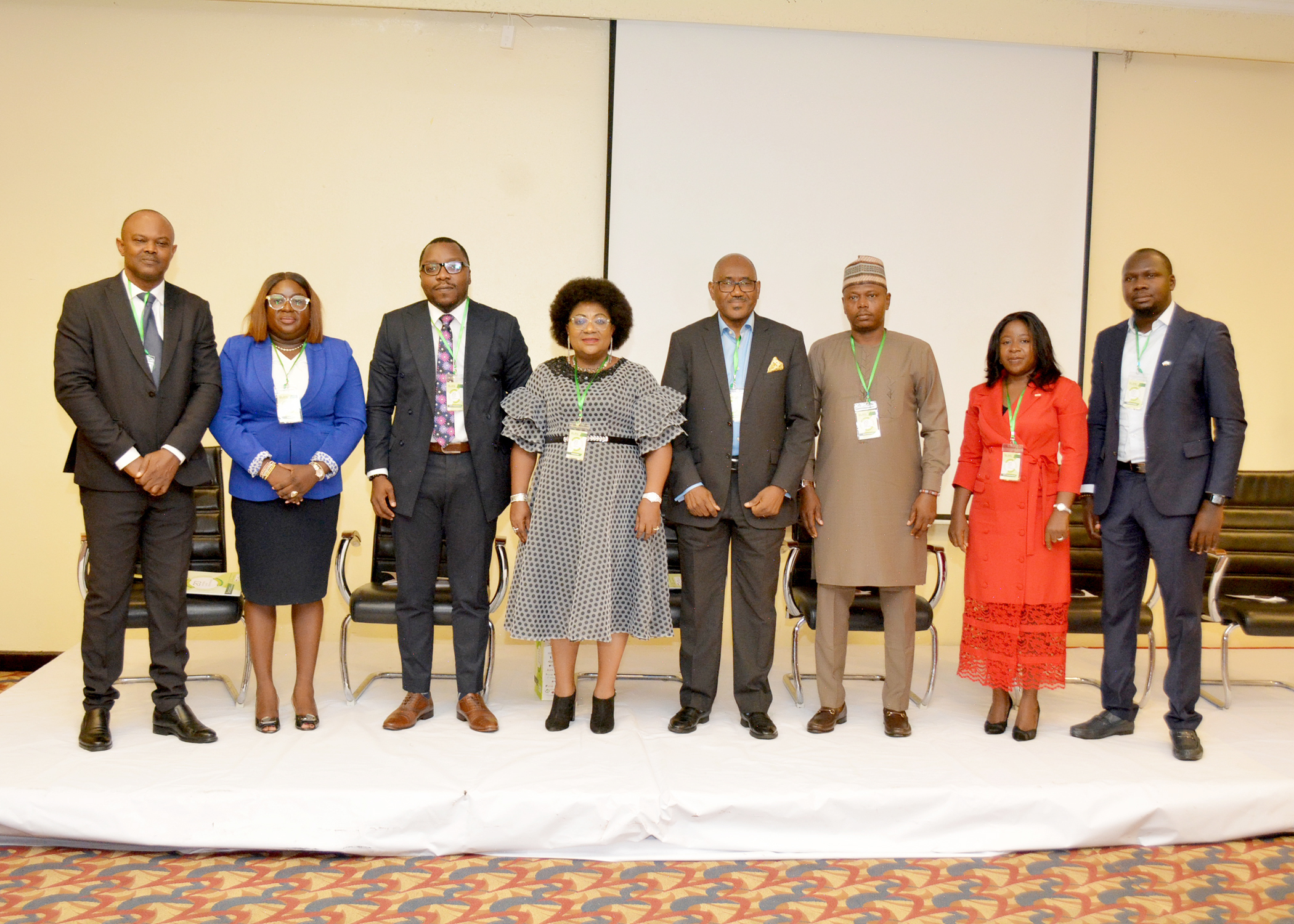
A COMMUNIQUE ISSUED AT THE END OF THE 20TH NATIONAL LEASE CONFERENCE ORGANISED BY THE EQUIPMENT LEASING ASSOCIATION OF NIGERIA AND A PPD HELD IN PARTNERSHIP WITH GIZ
HELD ON THURSDAY 24TH NOVEMBER 2022 AT SHERATON LAGOS HOTEL
Introduction
The Annual National Lease Conference is the biggest gathering of stakeholders in the Nigerian leasing industry; It has grown over the years to become an authentic platform to propagate the ideals of leasing.
The 20th conference was to consolidate on the gains made over the years. The theme, “The Regulatory Environment for Equipment Leasing: Role and Impact Analysis” was to examine the accounting, taxation and legal frameworks of leasing, which are key success factors for the leasing industry.
In addition to the presentation of three papers, the conference also had a Private-Public-Partnership (PPP) Discussion on the implementation of the Equipment Leasing Act (ELA). GIZ partnered with ELAN on the PPD.
The conference/PPD had the following objectives:
- Presentation of papers on issues affecting the leasing industry in Nigeria
- Arriving at resolutions to be sent to the Minister of Finance, Budget, and National Planning and other relevant authorities for appropriate consideration and action.
- Partnering to fast-track the inauguration of the Equipment Leasing Registration Authority (ELRA).
In attendance at the conference were relevant stakeholders in the leasing industry, including ELAN, Small and Medium Enterprises Development Agency (SMEDAN), Deutsche Gesellschaft für Internationale Zusammenarbeit GmbH (GIZ), Financial Reporting Council of Nigeria (FRCN), Ernst & Young Nigeria, Manufacturers Association of Nigeria (MAN), LAPO Microfinance Bank, and several private organisations in the leasing industry. Members of the press were also in attendance.
The workshop provided an opportunity for participants to engage and share views as well as to discuss the leasing regulatory landscape, market potentials, and the challenges confronting leasing as a tool for financing in Nigeria with suggestions on possible mitigants.
Following the presentations and PPD at the conference, the participants made the following observations and recommendations:
- Equipment leasing remains a creative financing alternative and generates new business volume of over $1trillion annually. The global leasing market is expected to grow from $1.35 trillion in 2021 to $1.53 trillion in 2022, and is expected to reach $2.4 trillion in 2026. In Nigeria, outstanding lease volume in 2021 was N2. 58trillion. The future of leasing remains bright because there are still wide financing gaps in all sectors of the economy.
- This growth in the leasing industry is driven by the increasing demand for leasing services brought on by astronomical rising costs of assets; scarcity of foreign exchange to pay for imports; new entrants into the leasing industry; enhanced awareness on leasing as a feasible financing instrument; the noticeable effect of companies rearranging their operations as a direct consequence of IFRS 16; and the positive effect of companies recovering from the impact of Covid-19.
- Also, businesses enter into leasing arrangements because it saves cost (where equipment is very expensive), to upgrade equipment, for add-on services, to save tax, and to lower or record no associated repairs and maintenance costs.
- Leasing is very relevant for SMEs, which, according to PwC’s recent “Nigeria SME Survey”, contribute 48% of national GDP, account for 96% of businesses and 84% of employment. Leasing can serve as an alternative to bank loans, which are hard to obtain.
- The Legal frameworks for leasing in Nigeria include The Equipment Leasing Act 2015; Banks and Other Financial Institutions Act 2020 by the Central Bank of Nigeria (CBN); Revised Guidelines for Finance Companies in Nigeria 2014; Common law of Contract, Case Laws. The Regulatory bodies for leasing in Nigeria include the Equipment Leasing Regulatory Authority (ELRA), Central Bank of Nigeria (CBN), while ELAN has been the pivotal association.
- The current accounting standard in Nigeria is IFRS 16, and it was issued because the former standard, IAS 17 had many drawbacks. First, IAS 17 aided non-transparency, and was criticised for not requiring lessees to recognise assets and liabilities arising from operating leases. Also, it had two different lessee accounting models, which meant that economically similar transactions could be accounted for very differently.
- The definition of leases presented in IFRS 16 is largely retained from IAS 17 but the guidance implementation has changed. Emphasis is now placed on the concept of control of asset.
- IFRS 16 has many benefits, including a faithful and more transparent representation which helps investors when making investment decisions. It also ensures improved comparability of financial information, while reducing the need to make adjustments to financial statements because it provides a richer set of information than what was available when companies applied IAS 17.
- However, since the replacement of IAS 17 by IFRS 16, the Federal Inland Revenue Service (FIRS) is yet to come up with a specific tax treatment of lease accounting and this has caused various tax treatment adoption.
- Leasing activities in Nigeria face different challenges, including unstable cash flow, foreign exchange issues, liquidity constraint, and lack of access to funds given the risk appetite and liquidity profile of financiers. However, the most glaring challenge of the leasing industry is the delay in the inauguration of the Equipment Leasing Registration Authority (ELRA).
- The ELRA, when inaugurated, will have several benefits, including the protection of the rights of both lessee and lessor, security for the lessor, certainty, transparency, and investment promotion.
- The delay in the inauguration of ELRA also leads to a lot of creativity and leeway in interpreting the leasing act.
- ELAN has done well but should continue to push for the inauguration of the ELRA.
- Leasing has the potential to empower people. One of Nigeria’s MDG goals is to reduce hunger and leasing is a way to do this, as it makes employment opportunities available.
- Speaking about leasing from the perspective of MSMEs, there is still a challenge. MSME operators do not fully understand leasing. Even support agencies for SMEs like SMEDAN and Lagos State Employment Trust Fund (LSTEF), do not fully understand the ramifications of leasing and may thus not be able to provide necessary helpful information on leasing to SMEs. There is lack of information and awareness about leasing.
- ELAN has also done a lot of work on creating awareness on leasing, but needs to do more to ensure that MSMEs fully understand what ELAN does, and how ELAN can benefit them.
- SMEDAN will collaborate with ELAN and other SME organisations like National Association of Small and Medium Enterprises (NASME) and chambers of commerce to bring awareness to leasing and how it can benefit MSMEs.
- To fastrack the inauguration of ELRA, there is the need for synergy between stakeholders like ELAN, GIZ, SMEs, and the FG. There is a need to highlight the problems being faced because of the delay in the inauguration.
- The Director General of SMEDAN should also engage the minister to fastrack the inauguration, even as ELAN does its own advocacy. Strong advocacy must continue on all fronts.
- If inaugurated, ELRA has the potential to end Nigeria’s unemployment problem. Data shows that SMES contributes about 48% of Nigeria’s GDP. Lack of funding is what hinders the growth of the 42 million MSMEs in Nigeria. If they are able to fund their operations through leasing, which will only be fully possible after ELRA is inaugurated, the MSME sector can experience even more growth and there will be creation of more jobs. For example, full funding can lead to the employment opportunities of about 2 workers each per MSME, meaning the creation of 84 million more jobs.

